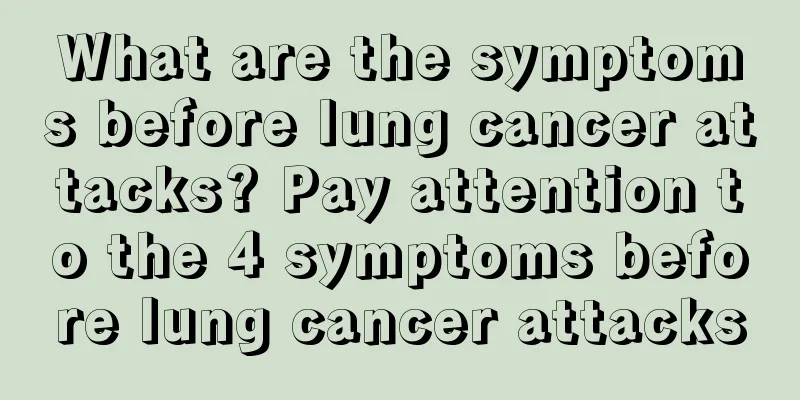What are the side effects of taking venlafaxine hydrochloride extended-release tablets for depression

|
Nowadays, most people are under pressure from all aspects. Some friends who have poor psychological endurance may develop psychological problems or diseases due to excessive pressure. For example, they may suffer from depression. If left untreated, the disease may cause serious consequences. Some patients may even commit suicide. Venlafaxine is a commonly used drug for the treatment of depression. So, what are the side effects of taking venlafaxine for depression? General Notes : Discontinue venlafaxine hydrochloride extended-release tablets Patients treated with venlafaxine should be systematically evaluated for withdrawal symptoms when the drug is discontinued, including the results of prospective analyses of clinical studies on venlafaxine for the treatment of GAD and retrospective surveys of venlafaxine for the treatment of depression. When patients suddenly stop taking medication or reduce high-dose medication, new symptoms may occur, and the frequency of symptoms increases with the increase in medication dose and treatment duration. Reported symptoms include: agitation, loss of appetite, anxiety, confusion, impaired coordination and balance, diarrhea, dizziness, dry mouth, irritability, fasciculations, fatigue, headache, hypomania, insomnia, nausea, nervousness, nightmares, paresthesias (electric shock-like sensations), drowsiness, sweating, tremors, vertigo, and vomiting. After the launch of venlafaxine hydrochloride extended-release preparations, other SNRIs and SSRIs, there have been some spontaneous reports of adverse events after discontinuation of the drugs, especially when the drugs are discontinued suddenly: irritability, irritability, agitation, dizziness, paresthesia (such as electric shock), anxiety, confusion, headache, laziness, emotional instability, insomnia, hypomania, tinnitus and epileptic seizures. The above symptoms are generally self-limited, but serious withdrawal reactions have also been reported. Patients should be monitored for these possible withdrawal symptoms when venlafaxine hydrochloride extended-release tablets are discontinued. It is recommended that the dose of either formulation of venlafaxine should be tapered gradually, avoiding abrupt discontinuation, and that the patient be monitored. If intolerable symptoms occur during the process of reducing or stopping the medication, you may consider returning to the previous therapeutic dose, and then your doctor may reduce the medication at a slower rate (see [Dosage and Administration]). Insomnia and tension Venlafaxine hydrochloride extended-release formulation (Effexor capsules) compared with placebo in the short-term treatment of depression and GAD. Often causes insomnia and tension. When using venlafaxine hydrochloride extended-release preparations to treat depression, the incidence of patients discontinuing the drug due to insomnia and tension was 0.9% respectively. In a study of venlafaxine hydrochloride extended-release for the treatment of GAD, the incidence of discontinuation due to insomnia and tension was 3% and 2%, respectively, in patients treated for more than 8 weeks, and 2% and 0.7%, respectively, in patients treated for more than 6 months. Changes in weight Adult patients: Clinical studies have shown that 7% of patients with depression receiving venlafaxine hydrochloride extended-release formulations and 2% receiving placebo experienced a weight loss of more than 5%. The proportion of patients who discontinued medication due to weight loss was 0.1%. In a placebo-controlled study of GAD, 3% of patients in the venlafaxine hydrochloride extended-release group and 1% of patients in the placebo group lost more than 7% of their body weight after 6 months. At 8 weeks of follow-up, 0.3% of GAD patients taking venlafaxine hydrochloride extended-release preparations discontinued medication due to weight loss. The efficacy and safety of venlafaxine combined with weight loss drugs (such as phentermine) have not been established. The concomitant use of venlafaxine and weight loss drugs is not recommended. Venlafaxine is also not approved for use alone or in combination with other therapies for weight loss. |
<<: What are the symptoms of myocardial infarction?
>>: Are there any side effects of taking Anjinyi
Recommend
Traditional Chinese medicine prescription for advanced gallbladder cancer
Advanced gallbladder cancer is no longer suitable...
What is progesterone
Many people in life do not know what progesterone...
What can't people with pituitary tumors eat
Dietary conditioning is very important for patien...
What happens if you eat too much fat
Otherwise, if the human body consumes too much fa...
6 tips for sex life for breast cancer patients
Compared with healthy people, breast cancer patie...
The difference between acupuncture and moxibustion
Acupuncture and moxibustion are both treasures of...
What are the methods for skin moisturizing
There are many reasons for dry skin, such as lack...
Prostate cancer examination indicators
Prostate cancer is a malignant tumor that occurs ...
What can I drink to cleanse my intestines and detoxify?
In order to better cleanse the intestines and det...
Raw materials for dishwashing liquid_Raw materials for dishwashing liquid
Detergent is a substance that we need to come int...
Are prostate nodules cancerous? Not all of them are
Nodules may develop into cancer, but not all nodu...
What are the obvious manifestations of early symptoms of bile duct cancer
Cholangiocarcinoma is a malignant tumor and a rel...
What is the effect of washing your face with milk
Washing your face with milk has a lot of benefits...
What kind of diet should be taken after chemotherapy for liver cancer to help recovery?
In life, liver cancer has affected the normal lif...
Is being hungry a symptom of early pregnancy?
Some female friends get hungry quickly and wonder...









